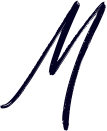
ost freelance writers serious about submitting to a market will faithfully read the market’s submission guidelines. Also called “Guidelines” or found on the “Contact Us” page, the submission guidelines for a publication or publishing company will provide all of the necessary information a writer needs to know in order to submit in such a way the guidelines state. But are you reading the submission guidelines correctly?
A Disturbing Trend
Nowadays, an unfortunate trend is that many new writers don’t bother reading submission guidelines. They just see a market and email the editor. Horror stories of such kinds of communication from writers abound on the Internet, along with the editor stating that such inquiries were automatically deleted.
Don’t let this happen to you!
By correctly following submission guidelines, you increase your chances of not only selling your writing to the market, but also having a potential market to submit work to again in the future.
Read All the Guidelines
The first thing you need to do is read ALL of the submission guidelines, word for word. Pay attention to what exactly the editor is asking for. Don’t scan for the important things or just hunt for the information you need. Read the entire guidelines. This will tell you everything you need to know about whether this market is right for you and/or how to submit to them.
When reading the guidelines, pay attention to a few select pieces of information. Points you should note are:
- What kind of work do they want? (Articles, poetry, short fiction, etc.)
- What topics do they cover? (Writing, automotive, paranormal, society and culture, etc.)
- What are their rates?
- What rights do they buy?
- Length or type of work?
- Who is the audience?
- Any deadlines for specific submissions?
- Do they want you to query or submit work on spec?
- Anything specific they want you to note in your query?
- Do they require writing samples with your query?
Make sure you are familiar with the kind of material the market publishes. I normally submit to markets I am already familiar with, but if I come across a new market, I spend some time reading the material they have already published in order to become familiar with what they publish.
Preferred Method of Submission
When reading the submission guidelines, note how the publication wishes to receive the submission. Do they use Submittable? Or do they prefer submissions sent by email? Do they want the submission as a Word doc or docx? Or as a PDF?
Many publications have their preferences on how they wish to receive a submission. Normally, they will tell you how to submit your work in their guidelines. Follow these instructions, as most editors will delete submissions that do not meet this criterion.
Reading Samples of a Publication
If you’re not familiar with the publication, take some time to read past issues. If possible, try to read their most recent issue.
Normally, most publications will include samples from back issues on their website, an archive of all past issues, or a list of excerpts from work they have published. In some cases, they will only include an excerpt of their most recent issue.
What to Do When There Are No Samples
Much to many freelance writers’ chagrin, some markets will forgo including samples of past issues on their site. They often suggest that a writer purchase their most recent issue or purchase a subscription instead. Unfortunately, this is not possible for many of today’s writers.
One way to get around this hurdle is to try to look them up at your local library or bookstore. See if a friend has a copy of their most recent issue or look them up on Facebook and Instagram, where they might share snippets of work they have published.
Check Their Socials
If this doesn’t work, look the editor and/or the magazine up on social media. I once found the Twitter account for an editor of a new magazine, and she tweeted about what kind of articles she wanted from writers. I also reached out to an editor through Instagram and asked what kind of work her magazine published.
Some editors will share excerpts on social media. Additionally, writers published in a particular publication may provide snapshots of their published work on social media, which can help the writer looking for what kind of work the publication wants.
Check Submission Sites
Failing this, look them up on other sites such as Duotrope or Submission Grinder, which may have more information of what kind of work they publish. These sites will normally provide a detailed look into the publication, including what kind of awards they have won. This can offer clues as to the type of work they publish.
Finally, try going with what information you already have about this market. What sort of vibe does it give off? Does it appear family-oriented? Does their writing style appear conversational or academic? If the guidelines merely state what topics they publish, you may have to just submit something that fits that topic and just hope for the best.
What Type of Writing Do They Want?
As you read samples of work a market has published, pay attention to the writing style and how their work is formatted. What kind of tone do they use? For articles, do they include many quotes? For poetry, what kind of poems do they publish?
In most cases, you won’t be able to see every kind of work they prefer to publish—for example, they may welcome traditional forms of poetry, while their latest issue contains only free verse poetry—but reading the samples can help give you a good idea of the kind of work they want. It can also shed light on the type of writing they accept.
Any Themes?
When you read submission guidelines, keep an eye out for the mention of a theme for the current submission period. Some publications which use themes will normally include a list of their themes for certain reading periods.
You should also note if they are only accepting submissions for these themes, rather than also accepting work outside of the theme. If there is no mention of a theme, then try to submit something similar to the kind of work that they have already published.
Do They Charge Fees?
In addition to themes, take note of fees. Some markets charge a reading fee or a submission fee. These are usually small fees of $3-$5 and these fees help keep the publication going. Some writers are comfortable paying submission or reading fees, while others are not.
Make sure you read the guidelines thoroughly to see if a fee is required. In some cases, a fee won’t be revealed until you get to their Submittable page, so be prepared for that information.
Ignore Guidelines at Your Own Peril!
Whatever you do, don’t neglect specific details in the submission guidelines, thinking the editor will take a chance on you or understand this oversight. Refusing to follow the guidelines, even in a way to make it look like a mistake, can look bad for you and anger an editor who may already be having a bad day. Rather than gaining an editor’s understanding over your mishap, it will only tempt them to hit the “delete” button. This is especially true if you are submitting to a market for the first time.
If the guidelines state they request a query letter first, then submit the query letter first. Don’t think it’s okay to submit your article on spec instead. In some cases, a market may state in their guidelines that they welcome both a query letter along with your submission, but in the event that they prefer a query letter first, then abide by this request. Ignoring any part of the submission guidelines will only sabotage your chances of having your work accepted, and the editor may not welcome future submissions by you.
Always Check Guidelines Before Submitting
Finally, keep in mind that submission guidelines can change. One market I submitted to in the past went from accepting work on spec to wanting queries first instead. For this reason, it’s a good idea to reread the submission guidelines right before you submit or query.
Even if you have read the guidelines in the past, read them again before submitting. They might have changed since you last checked.
Maintain a Professional Attitude with Editors You Know
If you are submitting to a market where you have been previously published, don’t resort to getting too chummy with the editor in your pitch or submission. It is better to remain professional in all of your business correspondence with editors and publishers.
Some submission guidelines will provide a sample format of what to include in your cover letter, and it’s usually a good idea to follow this format. If they require a bio in your query, then even if you know the editor well, provide the bio all the same. Follow their guidelines to a tee and provide exactly the kind of information they want to see in your cover letter or query.
Following the submission guidelines does not always guarantee you’ll receive an invitation to submit, but it’s a good idea to still follow the guidelines exactly as it has been laid out by the editor. This not only shows that you are serious about your role as a freelance writer but you respect an editor’s preferences. If you are a new writer just starting out, showing that you follow submission guidelines means that you took the time to read them.
Freelance writers attempting to get their work published must act in a professionally and following submission guidelines is the first step. The editor will be grateful that you took the time and therefore take the time to respond. The writer who faithfully sticks to reading and following the submission guidelines will leave a positive impact on that editor, who just might end up welcoming more work from the writer.
***

Dawn Colclasure is an author of several books who lives in Oregon. Her work has appeared in magazines, newspapers, and anthologies. She is a freelance writer, book reviewer and ghostwriter. Her articles have appeared in SUCCEED Magazine, American Fitness, BackHome Living, and Home Education Magazine. Her website is at www.dmcwriter.com.